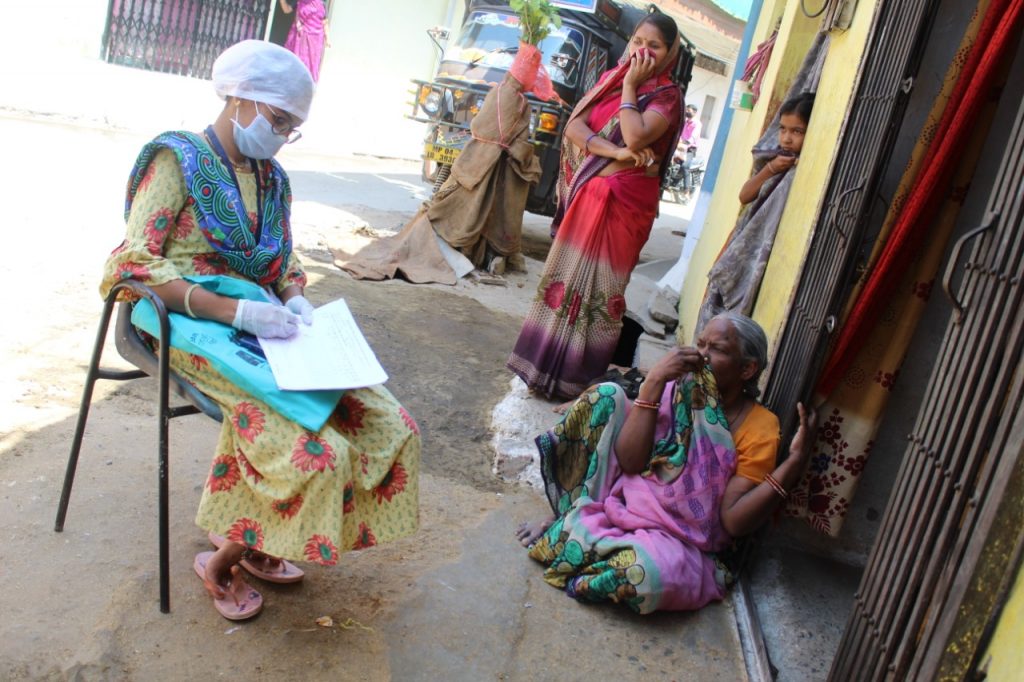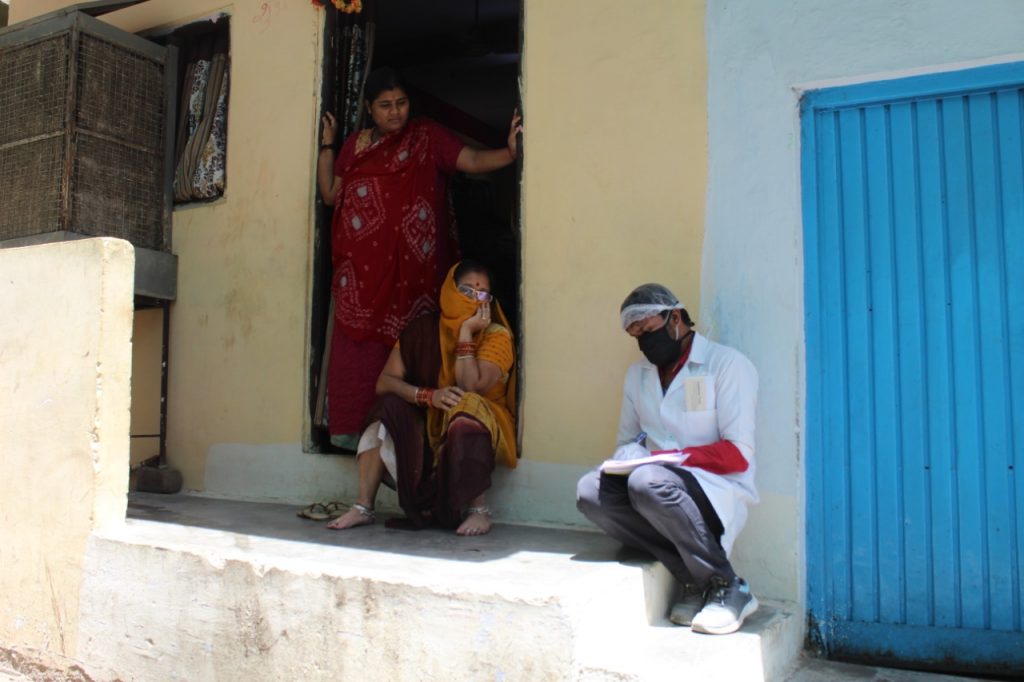According to the latest news from the Bhopal Group for Information and Action in Bhopal, the first seven people to die of Covid-19 in the city were all survivors of the 1984 gas disaster. This fact, along with statistics gathered by clinic staff, community volunteers and survivor groups in the city, unfortunately confirm prior concerns that the survivor communities are among the most vulnerable to the effects of coronavirus in the world.
In the wake of these tragic deaths, the Bhopal Group for Information and Action, along with the other four survivor groups in the city, are calling for local government intervention to help safeguard survivors. Although the Madhya Pradesh state government has not officially recognised that all seven victims were gas survivors, information gathered by the survivor organisations confirms this fact, as well the victim’s names, ages, genders, and the hospitals at which they were receiving treatment. The report shows that all seven victims were men between the ages of 42 and 80 and lived within four kilometres of the abandoned Union Carbide factory from which the gases they were exposed to first leaked in 1984. All but one were under the care of government hospitals designated for treatment of gas survivors, four of them at the newly re-opened Bhopal Memorial Hospital and Research Centre. All the deaths occurred between April 6th and April 17th, but survivor groups indicate that none of their medical records, including those indicating they tested positive for coronavirus, were released to families of the deceased.

These facts clearly indicate that concerns raised by survivor groups regarding the vulnerability of gas survivors prior to the arrival of coronavirus in Bhopal were well-founded. The four organisations sent a letter to local government authorities on the 21st of March calling for intervention for the protection of survivors, but received no acknowledgement and no measures were implemented. In light of the facts in this new report, the groups have today drafted a new letter to authorities outlining clear steps that must be taken to safeguard survivors and prevent the death toll continuing to rise. The letter identifies four primary areas in which action must be taken:
1. Identification of the most vulnerable groups, which include those above the age of 60 with existing health conditions due to exposure including diabetes, hypertension, COPD, heart and kidney problems, and cancers. The work of identifying these individuals should be carried out by the six state run gas relief hospitals, along with the central government run Bhopal Memorial Hospital and Research Centre and National Institute for Research in Environmental Health, at which a majority of these individuals are registered. Given access to computerised records, this work could begin immediately and be completed within one week’s time.
2. Protection must be provided to the identified individuals in the form of safe isolation spaces, either at home, or where this isn’t possible, in community based quarantine spaces. Food and water must be provided for all such individuals and a helpline provided in the event that they require immediate medical assistance.
3. Medical care should be provided to those suffering the effects of chronic health conditions without the need for them to visit the hospitals directly and risk exposure and infection. This could be achieved through home visits by state medical teams from the aforementioned eight hospitals.
4. An ICU must be established with isolation wards, ventilators, and a supply of relevant medicines and oxygen that is fully dedicated for treatment of critically ill gas survivors displaying symptoms of Covid-19. The 50-bed Pulmonary Medicine Centre situated in Jehanagirabad has been identified as suitable for this purpose.
Along with these primary requests for immediate intervention, the letter identifies seven further steps that could be taken to help safeguard survivors and other vulnerable members of the local communities. These include raising awareness, increased testing, reporting symptoms and deaths to families, testing of those who die at home, availability of rations for the vulnerable, payment for loss of livelihood and pensions for widows and the bereaved. Although need for immediate government intervention is dire, we are pleased to report that staff from our own Sambhavna and Chingari clinics, along with a network of community health volunteers, are already taking steps to help ensure some of these needs are met. You can read their full five-step action plan for community care on the following page of our website:
https://www.bhopal.org/about-us/sambhavna-clinic/coronavirus/
We would like to offer our support to the four survivor groups and join them in calling upon the state government to take immediate steps along the lines suggested above to help safeguard survivors and prevent further deaths due to the spread of Covid-19. We would also like to offer our sincere condolences to the families of the seven survivors who have passed away and all those in Bhopal currently struggling due to coronavirus and the measures put in place to prevent its spread. We will be providing more updates on the situation soon.



